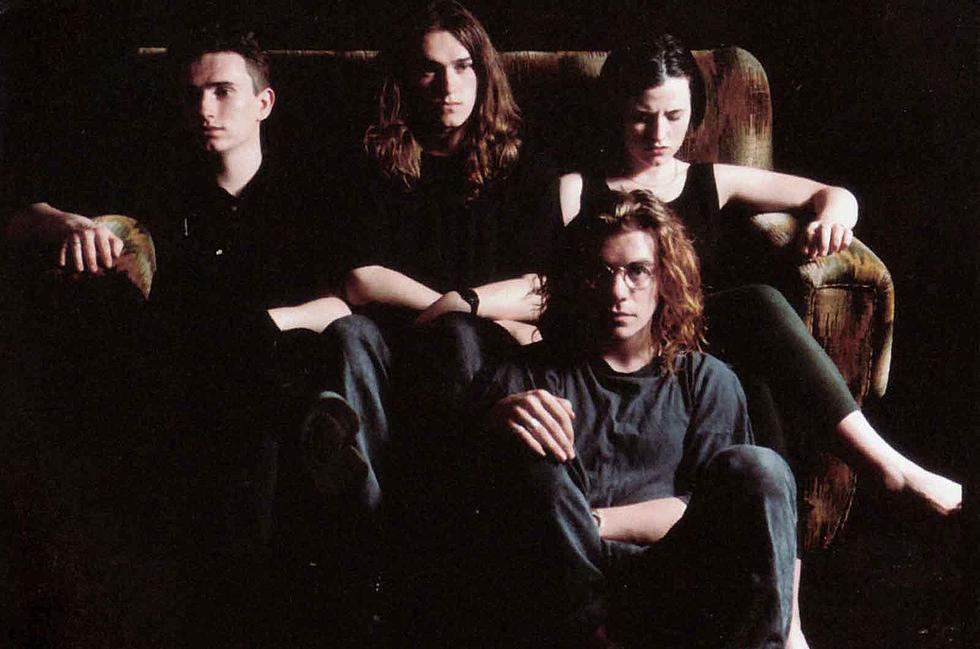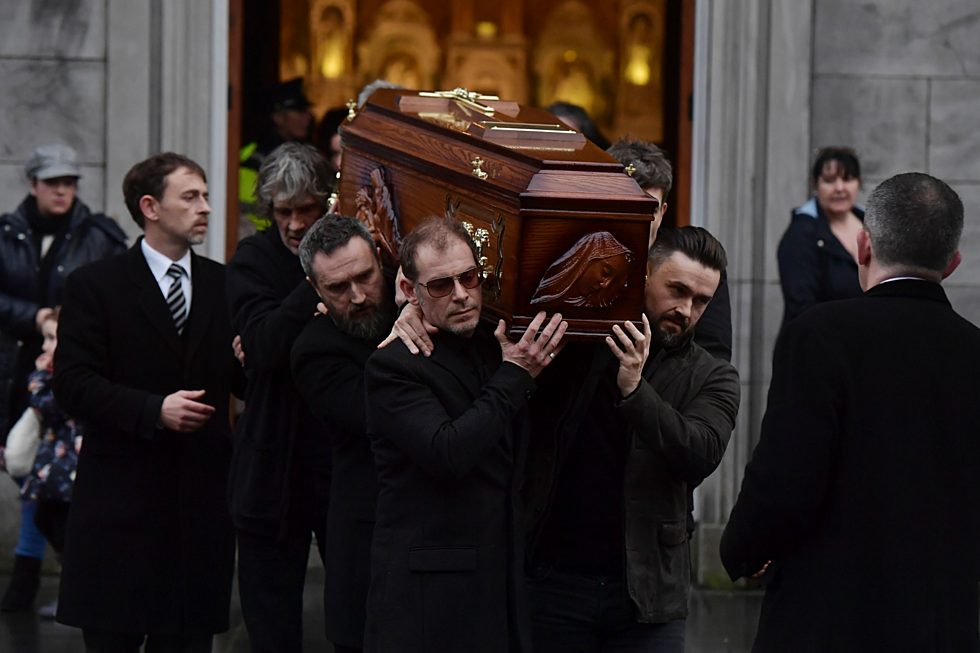25 Years Ago: Cranberries Emerge With Debut LP, ‘Everybody Else Is Doing It, Do Why Can’t We?’
The '80s put Ireland in the center of the world's music scene, as exports like U2 and Sinead O'Connor found international success. But as the decade changed, a new Irish act emerged from the blue-collar town of Limerick -- the Cranberries.
In 1989, brothers Noel and Mike Hogan, along with drummer Fergal Lawler and singer Niall Quinn, formed a band called the Cranberry Saw Us. After only a few months, Quinn quit to focus on other musical ventures. The remaining members decided to search for a replacement. At the recommendation of a friend, Dolores O’Riodan auditioned.
“Dolores came in with her keyboard, and she had really short hair and she was very small,” recalled Noel in an interview with Rolling Stone. "Dolores was never a babe,” added Lawler, “so we knew that she was the right person for the job. If she had come up in hot pants, we probably would have said, 'I don't think so.’”
For her part, O’Riodan was not intimidated by auditioning in front of a group of men.
“I remember there were a lot of guys there, probably about 10 of them in the room, just hanging out, and they were about 16, 17 or 18 years old," she recalled. "I was 18 and went in with my Yamaha keyboard under my arm, sang a few songs for them and then they played a few songs for me. I remember thinking they had potential.”
Impressed by the singer’s talent, Noel gave O’Riodan a cassette tape with some instrumental demos. A week later she came back with lyrics to what would eventually become “Linger.”
“'Linger' was the first song we wrote. Initially, it was just a chord shape, with no real melody or lyrics,” O’Riodan told the Irish Times. “I took a tape of it home and came up with a verse and chorus. I wrote about being rejected. I never imagined that that it would become a big song.”
The band would record a demo version of “Linger,” along with the songs “Sunday,” “Chrome Paint” and “Fast One,” for their Water Circle demo cassette. Only 300 copies were made, with most being sent to record labels in the hopes of securing a contract. Water Circle was recorded at Xeric Studios, owned by local musician Pearse Gilmore. He saw so much potential in the band that he quickly signed on to be their manager and producer.
As the demo version of “Linger” began to generate buzz in music industry circles, the group decided to change its name to the Cranberries. After a bidding war among labels, the band signed with Island Records.
At Gilmore’s suggestion, the Cranberries hastily recorded an EP titled Uncertain. Released in 1991, the EP failed to build on the interest generated by Water Circle. Critics and fans both panned the release, causing trepidation within the band. As they prepared to record their first full-length album, tensions were strained. Making matters worse, Gilmore had been arranging backdoor deals that were unknown to the band. With pressure firmly upon them, the Cranberries decided to cut ties with Gilmore and restarted the album from square one.
Watch the Cranberries' Video for 'Dreams'
Even though the process was tough, O’Riodan told Rolling Stone that it made the band more resilient. ”When we fired our manager, I think it made us a lot stronger," she said. "I knew I would never again let anyone make me do something I didn't want to do. I knew I would never again let somebody tell me what to do.” Noel echoed her sentiments: ”We didn't have a problem with each other. We had a problem with this guy.”
After taking another six months to craft and rework its debut LP, the band returned to the studio. This time they made sure they had the right staff, recruiting Rough Trade founder Geoff Travis as their manager and Smiths and Morrissey producer Stephen Street. Only two previously released songs would make it on the album: “Linger” and “Sunday,” both from Water Circle. On March 1, 1993, Everybody Else Is Doing It, So Why Can’t We? was released.
At first, the commercial response was subdued. Critics didn’t know how to categorize the band, seemingly confounded by the singer’s distinctive Irish voice. Entertainment Weekly claimed the group sounded like “Sade with guitars,” while CMJ opined that the album had “no bracing hit single; just 12 songs with the dreamiest of hooks.”
“Dreams” was issued as the lead single, but it failed to find an audience; Island quickly decided to release a second single in hopes of better response. The song was “Linger.”
“It was inspired by a night I had at a club called Madonna’s,” O’Riodan would later recall. “This guy asked me to dance and I thought he was lovely. Until then, I’d always thought that putting tongues in mouths was disgusting, but when he gave me my first proper kiss, I did indeed ‘have to let it linger.'
“I couldn’t wait to see him again. But at the next disco, he walked straight past me and asked my friend to dance. I was devastated. Everyone saw me being dumped, publicly, at the disco. Everything’s so dramatic when you’re 17, so I poured it into the song.”
O’Riodan’s powerful vocals and relatable lyrics struck a chord with the music. “Linger” became a radio staple, remaining on the Billboard Hot 100 for 24 weeks, peaking at No. 8. It also charted in the U.K., Ireland, Canada, Scotland and Australia. The noir-inspired music video was put into heavy rotation on MTV.
Looking to ride the success of “Linger,” the band made the unusual decision to re-release “Dreams” as a single. The strategy worked, and it became a Top 40 hit in the U.S., and was featured in the movies The Next Karate Kid, Milk Money and Boys on the Side, and on the TV shows My So-Called Life and Beverly Hills, 90210. The Cranberries were officially part of '90s pop culture.
Everybody Else Is Doing It, So Why Can’t We? would go on to sell more than five million albums in the U.S. Though their second album, No Need to Argue, would prove even more commercially successful, the debut remains one of the defining LPs of the '90s.
In 2017, the Cranberries returned with their seventh album, Something Else, which featured unplugged and orchestral versions of many of the band’s most beloved songs, including “Linger” and “Dreams”. It was the final album released by the band before O’Riordan’s death on Jan. 15, 2018.
Top 100 '90s Rock Albums
More From Ultimate Classic Rock









